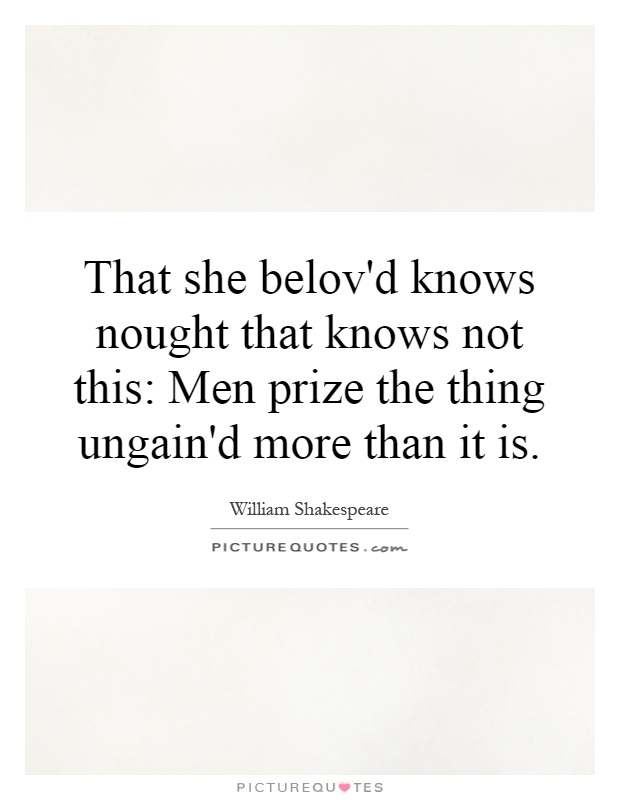That she belov'd knows nought that knows not this: Men prize the thing ungain'd more than it is

That she belov'd knows nought that knows not this: Men prize the thing ungain'd more than it is
In William Shakespeare's works, particularly in his sonnets and plays, the theme of unrequited love is a common motif. The quote "That she belov'd knows nought that knows not this: Men prize the thing ungain'd more than it is" encapsulates the idea that people often desire what they cannot have, and that the pursuit of something unattainable can sometimes be more alluring than actually achieving it.In many of Shakespeare's plays, we see characters who are consumed by their unrequited love for someone who does not return their affections. This unattainable love becomes an obsession, driving the characters to great lengths to try and win the object of their desire. The quote suggests that the beloved, who is unaware of the depth of the admirer's feelings, does not truly understand the power of their own allure. The idea that men prize the thing ungained more than it is speaks to the human tendency to idealize that which is out of reach, believing it to be more valuable or desirable than it may actually be.
One of the most famous examples of unrequited love in Shakespeare's works is found in his play "Romeo and Juliet." Romeo's love for Juliet is unreciprocated at first, as she is initially betrothed to another man. Romeo's pursuit of Juliet, despite the obstacles in their way, only serves to intensify his feelings for her. The quote could be applied to Romeo's situation, as he prizes Juliet more because she is initially unattainable to him.












 Friendship Quotes
Friendship Quotes Love Quotes
Love Quotes Life Quotes
Life Quotes Funny Quotes
Funny Quotes Motivational Quotes
Motivational Quotes Inspirational Quotes
Inspirational Quotes